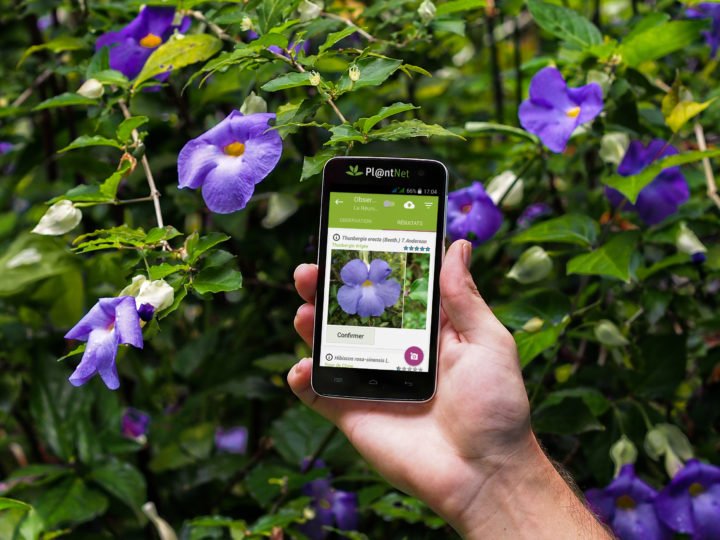Have you ever come across a beautiful plant and were curious to know more about it? With advances in technology, it is now easier than ever identify plants using just your smartphone. Whether you're a gardening enthusiast, a botany student, or simply someone who enjoys walking in nature, there are a multitude of apps available that can help you discover the name and characteristics of the plants you encounter. In this post, we will explore the best apps to identify plants, highlighting its features, pros and cons. Get ready to dive into the fascinating world of plants!
Why Use Apps to Identify Plants?
Facilidade e Conveniência
One of the biggest advantages of using apps to identify plants is the ease and convenience that they offer. Instead of carrying around heavy botany books or relying on field guides, you can simply take a photo of the plant with your phone and get instant information. These applications use advanced image recognition algorithms and extensive databases to provide fast and accurate results, allowing you to identify plants in anywhere and anytime. This makes the experience of exploring nature much more accessible and fun.
Educação e Aprendizado
In addition to convenience, plant identification apps are excellent educational tools. They not only identify plants, but also provide detailed information about each species, including its scientific name, habitat, distinguishing characteristics, and even growing tips. This can be extremely useful for students, teachers, and anyone interested in learning more about the flora around them. By using these apps you can expand your botanical knowledge and develop a deeper appreciation for plant diversity.
Conservação e Sustentabilidade
Identifying plants accurately is not just a matter of curiosity or education; can also have a significant impact on conservation and sustainability. By understanding native and invasive plants, you can make more informed decisions about gardening and landscaping, promoting local biodiversity. Additionally, many apps encourage user participation in collecting data for scientific research, helping to monitor species distribution and detect environmental changes. Thus, by using applications to identify plants, you contribute to the environmental protection and supports conservation efforts.
The 10 Best Apps to Identify Plants
1. PlantSnap
PlantSnap is one of the most popular apps for plant identification, offering a wide range of features. Using an extensive database and image recognition algorithms, it allows you to quickly identify a wide variety of plants, flowers and trees.
Pros: Large database, user-friendly interface that makes it easy for anyone to use. Cons: Requires internet connection for best results, which may be a limitation in remote areas.
2. PlantNet
PlantNet is a free application developed with the help of contributions from the scientific community. It allows users to submit photos of plants for identification, continually enriching its database.
Pros: Free of charge, it receives contributions from the scientific community, which guarantees a constantly updated database.
Cons: Sometimes it can be less accurate when identifying exotic or less common plants.
3. PictureThis
PictureThis offers quick and accurate plant identifications, as well as providing care tips and detailed information about each species.
Pros: Quick identifications, intuitive interface, useful plant care tips.
Cons: Some premium features require a subscription, which may be a hindrance for some users.
4. iNaturalist
iNaturalist is a platform that combines a social network and a plant identification tool. It allows users to share their observations with a community of naturalists and experts.
Pros: Social network of naturalists, identification carried out by experts, promoting collaborative learning.
Cons: The interface can be complex for beginners, requiring some time to adapt.
5. Plantix
Plantix is focused on agricultural plants, offering disease and pest diagnoses as well as treatment recommendations.
Pros: Excellent for farmers, it offers detailed diagnostics and solutions to crop problems.
Cons: Less useful for identifying ornamental or non-agricultural plants.
6. LeafSnap
Developed as a research project, LeafSnap has a high-quality database and uses advanced technology to identify plants from photos of their leaves.
Pros: High quality database, ideal for identifying plants from the USA and Canada. Cons: Mainly useful for North American plants, which limits its applicability in other regions.
7. Flora Incognita
Flora Incognita is a European application that allows easy and accurate plant identification, with a focus on European flora.
Pros: Easy to use, extensive database of European plants.
Cons: Limited to European flora, which may not be useful for users from other regions.
8. Seek by iNaturalist
Seek is a gamified app that encourages users, especially children, to explore nature and identify plants in a fun way.
Pros: Gamification makes learning fun, ideal for kids and beginners.
Cons: It relies on the community for verifications, which can lead to some inaccurate identifications.
9. Plant Identification ++
This application offers high-precision plant identification and has an intuitive interface that makes it easy to use.
Pros: High identification accuracy, friendly and easy-to-use interface.
Cons: Some features are paid, which may limit their full use for those who do not wish to pay.
10. Garden Answers
Garden Answers is a useful tool for gardeners, offering quick answers and detailed information about ornamental plants.
Pros: Quick responses, very useful for gardening and identifying ornamental plants. Cons: Less robust for identifying plants that are not ornamental, limiting their use in certain contexts.

Tips for Using Plant Identification Apps
Fotografia
To obtain accurate identification, it is essential to take good photos of the plants. Make sure the image is clear and well lit, avoiding shadows that could obscure important details. Photograph the plant from different angles, including leaves, flowers, fruits and stems. A good practice is to also take photos of the environment where the plant is growing, as the habitat can provide additional clues for identification.
Verificação Cruzada
Although many apps are quite accurate, it is always a good idea use multiple apps to verify your IDs. Different applications have different strengths and databases, and what one application may not recognize, another may correctly identify. This increases the accuracy of your identifications and gives a more complete view of the plant in question.
Contribuição
Many plant identification applications rely on community participation to improve their databases and the accuracy of identifications. Whenever possible, contribute your observations and photos to the application community. This not only helps improve the app, but also supports scientific research and conservation efforts. Collective collaboration can make a big difference in the quality and reach of plant identification tools.
Conclusion
With the help of applications to identify plants, you can become a true expert in amateur botany. These apps offer a practical and fun way to learn more about the flora around you, whether for gardening, studies or simple curiosity. Choose the app that best suits your needs and start exploring the nature around you with a new look. Download one of these apps today and discover the wonder of plants! Whether identifying species in your backyard or while hiking, these apps will transform your experience and enrich your knowledge about the green world.
Would you like to know more about the best apps to identify plants? So be sure to follow the other articles on the blog, we have lots of other news for you!



